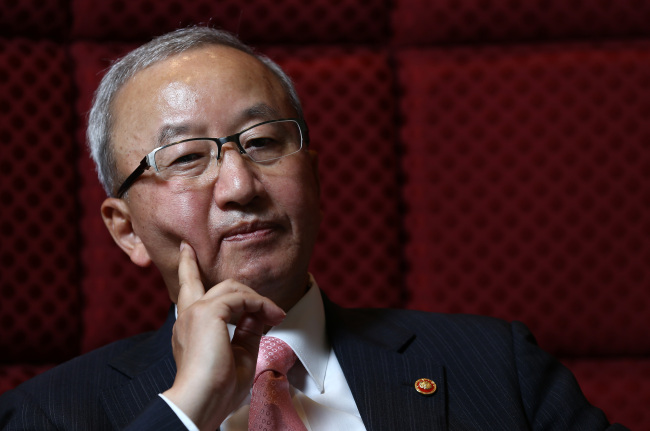 |
Hyun Oh-seok |
Deputy Prime Minister and Finance Minister Hyun Oh-seok has raised the bar for state-owned enterprises and quasi-sovereign institutions to commence management reform and reduce their excessive debt.
Finance Ministry officials said that the deputy prime minister will also hold related government agencies responsible should they fail to properly oversee their companies and institutions that fall under their management jurisdiction.
They said that the finance minister’s tougher calls for reforms and responsibility came during a meeting on Wednesday.
Hyun said then that no one, including chiefs of state-run enterprises and ministers managing those companies, would receive “immunity” from such responsibilities and obligations.
This also pertains to new chiefs and executives who had no control over the companies’ finances and welfare benefits that had been exploited by their predecessors and the previous administration, Finance Ministry officials said.
“The steering committee of the Finance Ministry should play the central role of overseeing public enterprise reforms, but related ministries should also closely look into their companies,” Hyun said during the meeting with economy-related ministers.
“We will further disclose (to the public) companies’ debts and reckless management as a means to face the issue and solve the problem,” the finance minister added.
This means that agencies such as the Ministry of Trade, Industry and Energy and the Ministry of Land, Infrastructure and Transport will increase their efforts to watch over their companies’ finances and executive pay.
The companies such as Korea National Oil Corp., Korea Railroad Corp. and Korea Land & Housing Corp., whose debt ballooned over the years, are expected to be further scrutinized, not only by the steering committee designated by the Finance Ministry but also their government ministries.
The Ministry of Employment and Labor and the Ministry of Health and Welfare are also under fire as their companies such as National Health Insurance Service and Korea Workers’ Compensation & Welfare Service were found to have given executives excessive pay and welfare benefits.
In a meeting with chief executives of 12 state-run enterprises last week, the deputy prime minister warned them that “the party is over,” saying that the government will put a stop to their relentless greed for higher bonuses and salaries, and over-borrowing.
The finance minister added that it would come up with a new benchmark system for executive pay and introduce tougher measures that would allow related government agencies to evaluate where their state-run enterprises have offered excessive benefits.
By Park Hyong-ki (
hkp@heraldcorp.com)








